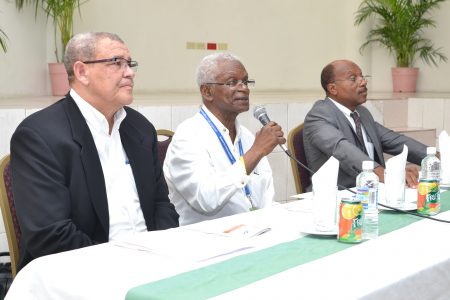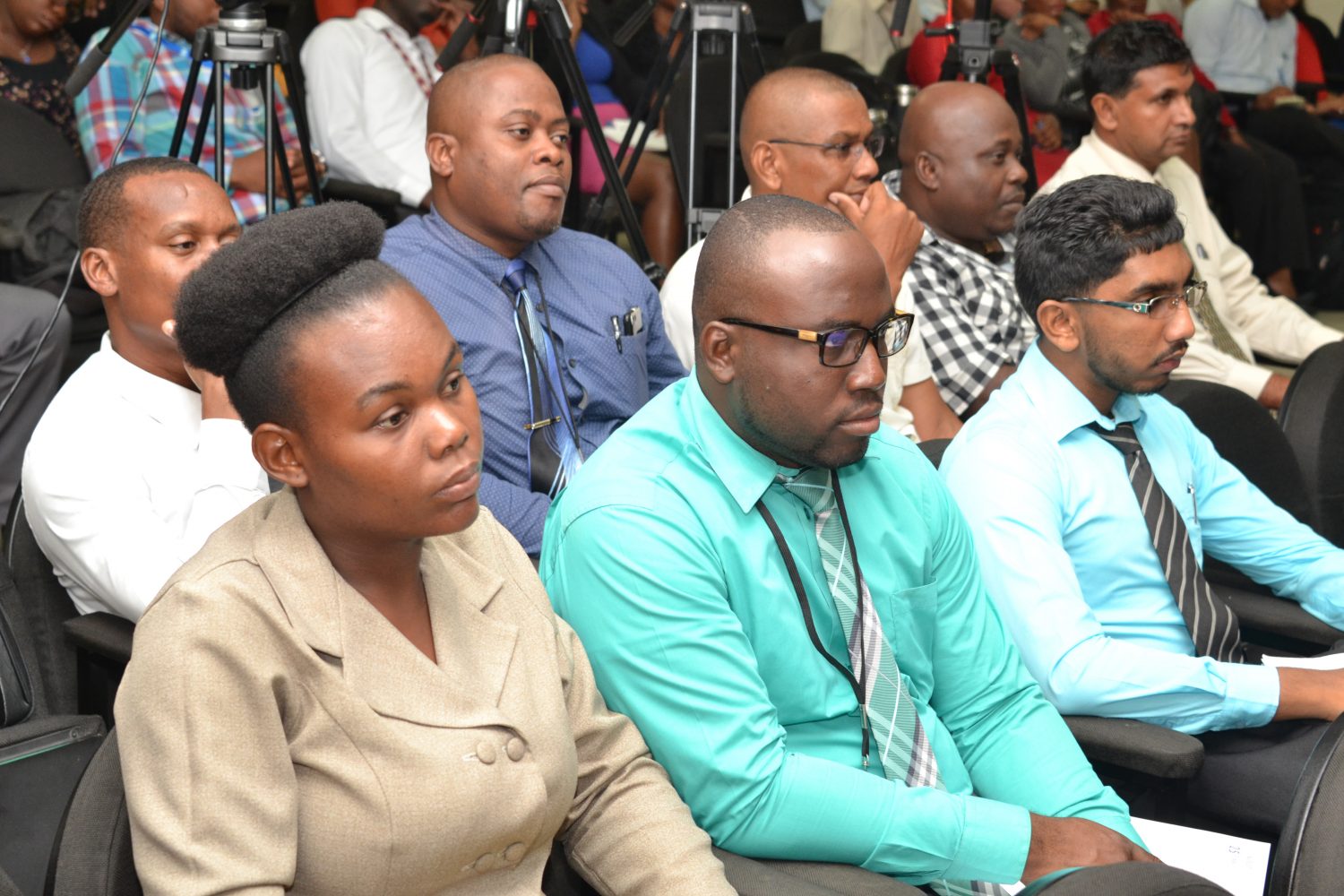The State Assets Recovery Agency (SARA) yesterday opened a Law Enforcement Training Series on Assets Recovery and Financial Investigations, which targets more than 70 persons at the Felix Austin Police Training College.
A release from the Ministry of the Presidency said that the 18-day workshop is being held in collaboration with the Caribbean Institute of Forensic Accounting (CIFA).
The Workshop will focus on equipping the participants from the Financial Intelligence Unit (FIU), SARA, the Special Organised Crime Unit (SOCU), the Bank of Guyana, the Guyana Revenue Authority (GRA) and other security agencies, with skills on how to undertake investigations, handle information and build cases.

Director of SARA, Dr. Clive Thomas, in his remarks said that the training programme is focused on educating persons, most of whom will be working at the agency once it moves into its permanent space in a few weeks.
“The training covers all the basic elements of recovery of assets, how to investigate the theft of public assets, how to trace it particularly when it is put into forms that is not easily identifiable or it might be leaked overseas into foreign bank accounts and sometimes how it is transferred to other people. We have to trace the prime resource of that wealth that people get. At the end of the training we will accomplish the hope of building up resources, and skill capacity of the staff that we employ so we can do our jobs more productively,” he said.
Dr. Thomas said that before any case can reach the Courts, diligent investigations will have to be done and cases formulated. In this regard, he noted that training is crucial.
“[It] is a highly skilled operation and part of our mandate is to train our staff to do that. We also have a responsibility under the SARA Bill to train members of the judiciary to do that. So we have a responsibility to ensure that people prosecuting on behalf of the state, the judges and magistrates who, undertake cases dealing with civil recovery of stolen assets have some training that are mandated under the United Nations Convention Against Corruption and it is part of that responsibility that we start out the programme with it,” he said.
Asserting that a large volume of work is required to build solid cases, Dr. Thomas said that while the current output is slow, he is confident that the training will enable significant benefits.
“Case building is something that you have to be patient about because you have to make sure that in this environment, the first set of cases that we take to the court are successful so that we build on that reputation going forward. Remember that the sums of the money involved are huge so it is worth the patience, it is worth the endeavour of trying to prove these cases systematically. This is why we have engaged the Caribbean Institute of Forensic Accounting to be the lead organization,” he said.
For the new year, the Director said that the Agency will be focusing more on training and public education.
“Unless we create the skills base, unless we create the cultural and educated environment in which people see what we are trying to do, we are not going to be very successful. Ultimately people not being corrupt is a matter of culture and education and training so even though it may look like a soft activity, it is one that people will come to realize that crime does not pay,” Dr. Thomas said.
The release said that the head of the Guyana Revenue Authority, Godfrey Statia, echoed these sentiments, noting that corruption must be rooted out.
“We know that the corruption is at the top of the scale. We’re actually not alone with that. If you get the chance then I think that you should probably read the report, which is done by the Association of Certified Fraud Examiners (ACFE), you would see that in Latin America and the Caribbean corruption accounts for 45 percent of all the frauds that go on. So therefore, Guyana is not alone. We are in the forefront of fraud and we should try to gain as much as we could from this particular course so that we could try to reduce that fraud and to find the culprits,” he said.
The training, he added, in addition to providing skills and knowledge, will also create a network among the critical agencies, which can see enhanced cooperation and more.
“The fact that there are so many agencies here means that at some point in time you guys are going to network. The information that you are going to see here, one particular agency would not have it. You will find until we have a common database, you will find that you would have to ask your colleagues for information and sometimes laws would stymie that type of information that you would need, but that does not necessarily mean that you cannot come together and use your resources so as to meet the end result. I’m sure that we will work together, with all the agencies, for the betterment of the country,” Statia stated.
The training will be facilitated by experts from the United Kingdom, Trinidad, Grenada and other countries in and around the Caribbean.









